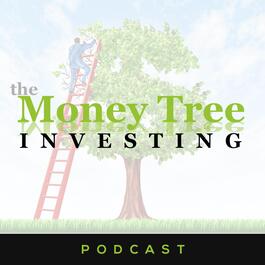
Kirk changes his tune on housing as he moves towards purchasing a new home. Today we explore how homeownership is often more of an emotional choice than a smart financial investment, with many people misunderstanding the real cost compared to renting. We talk about the burden of property taxes, why paying off a mortgage early might not always make financial sense, and the social pressures around owning a home. We shift gears to a surprising discovery in credit reporting systems—a “Human Trafficking Request” option—which leads us to reflect on the serious issue of human trafficking, especially in border areas, and how complex and unexpected some financial topics can be. We also talk property taxes, economic growth, and more! Today we discuss... Buying a home isn’t just about numbers—it’s emotional, from nesting instincts to worrying about what neighbors think. Contrary to popular belief, owning a home often isn’t a great financial investment; it’s mostly a personal expense. There’s a sweet spot where owning beats renting, but for expensive properties, renting often comes out cheaper. Paying off a low-interest mortgage early might feel good, but financially, investing that money elsewhere often makes more sense. You never really “own” a home because ongoing costs like taxes and maintenance keep coming. A bizarre credit bureau feature for removing human trafficking info—raises a lot of questions about what’s on our reports. Trying to freeze or check credit reports online turned into a frustrating experience with errors and security concerns. A “chart crime” was discussed involving misleading silver price charts that artificially suggest massive future price spikes. Everyone, including experts, has biases, and the best investing involves independent thinking free from crowd influence. Warren Buffett’s investment strategy of avoiding Wall Street noise by focusing on fundamentals is highlighted, though his recent performance is debated. The US stock market has outperformed international markets over the past two decades, with Europe’s regulatory environment hindering growth. Government remains the largest job growth sector in the US, followed by healthcare, while mining, logging, and wholesale trade experience declines. The overarching advice is to think independently and critically about economic and investment data rather than relying solely on common narratives or biased sources. Silicon Valley Bank’s collapse risked systemic damage due to concentrated wealth in California’s tech sector and the bank’s insolvency. Banks face difficulty raising liquidity quickly without selling assets at steep unrealized losses, causing stress in both banking and real estate markets. Tech giants like Apple, Microsoft, and Nvidia are performing well in earnings season, while healthcare and oil services sectors lag. Caution is advised against chasing recent market gains, with better opportunities expected in the fall after potential market pullbacks. Today's Panelists: Kirk Chisholm | Innovative Wealth Douglas Heagren | ProCollege Planners Follow on Facebook: https://www.facebook.com/moneytreepodcast Follow LinkedIn: https://www.linkedin.com/showcase/money-tree-investing-podcast Follow on Twitter/X: https://x.com/MTIPodcast For more information, visit the show notes at https://moneytreepodcast.com/kirk-changes-his-tune-on-housing-731
From "Money Tree Investing"


Comments
Add comment Feedback